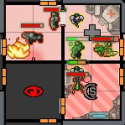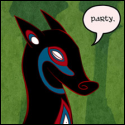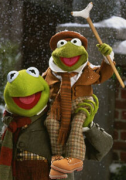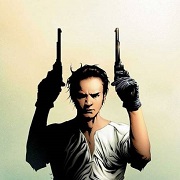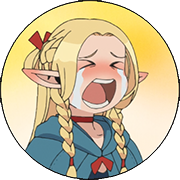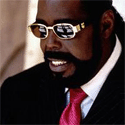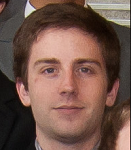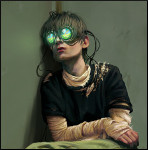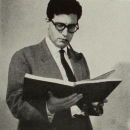|
Hedrigall posted:New Reynolds novel info: Oh poo poo, this sounds like he's written it for me. Anyone reading Medusa Chronicles? Out yesterday in UK.
|
|
|
|

|
| # ? Jun 4, 2024 21:07 |
|
Fiendish Dr. Wu posted:Ooh neat. Are these parts of a series? Complete rundown of announced upcoming Reynolds works: Revenger - Standalone novel in new universe The Medusa Chronicles - Homage/sequel to an Arthur C Clarke novella called "A Meeting With Medusa" Beyond The Aquila Rift - Collection of 20 short stories & novellas, all previously published (contents here) "Belladonna Nights" - Short story set in the House of Suns universe "The Iron Tactician" - Novella set in the Merlin universe ("Hideaway", "Minla's Flowers", "Merlin's Gun")
|
|
|
|
Hedrigall posted:Complete rundown of announced upcoming Reynolds works: Revenger sounds like he is going back to what he does best, and what worked so well in Revelation Space. Reynolds writing space exploration in combination with space horror is kinda hard to beat. Diamond dogs is probably still my favourite story by him.
|
|
|
|
Xotl posted:
I've finished the second one, and I've loved it. Better than the first, in my opinion. It begins slow, as a classic "away team stranded in alien planet"... just the planet is about to blow up. The tension grows up as the hours pass, the place has some ancient stuff here and there -with no time to study or understand- and the finale is... well, epic. That book seems to be written to do a movie from it.
|
|
|
|
Oh and I missed this, from Alastair Reynolds' website:Alastair Reynolds posted:I am now working on a sequel to THE PREFECT, which should appear in 2017.
|
|
|
|
Hedrigall posted:Oh and I missed this, from Alastair Reynolds' website: Uh, perhaps we will be treated with a story happening during the melding plague. I don't have the chronology in my head, but I don't think it is a lot of "space" between the ending of The Prefect and the beginning of the plague.
|
|
|
|
A novel titled "Revenger", a Prefect sequel and a 250,000 word short story collection fill me with joy. I already have Galactic North but looks like there's only a bit of overlap.
|
|
|
|
Antti posted:I already have Galactic North but looks like there's only a bit of overlap. For those playing at home, 2 of the stories were collected previously in Galactic North, 3 in Zima Blue, 1 in Diamond Dogs, Turquoise Days, 3 in Deep Navigation, and the remaining were not previously collected.
|
|
|
|
Antti posted:A novel titled "Revenger", a Prefect sequel and a 250,000 word short story collection fill me with joy. I already have Galactic North but looks like there's only a bit of overlap. Metal Gear Solid Revengeance was extremely sick and good despite the name being made up. I will buy this book.
|
|
|
|
Hedrigall posted:New Reynolds novel info:
|
|
|
|
Cardiac posted:Revenger sounds like he is going back to what he does best, and what worked so well in Revelation Space. I am so excited for this, and the PREFECT sequel. Reynolds can be tedious when he isn't writing space exploration horror. I think I might be the only person in the world who really honestly quite enjoyed CENTURY RAIN, though, it had such a wonderful Casablanca-esque flavor to it, which is not something you associate with closed timelike curves generally. The tension between the Threshers and Slashers was also appealing. (Team Slasher all the way, obv.)
|
|
|
|
Space exploration horror is the best. Maybe when more authors pull their heads out of the rear end of the current cynical realism trend they can start writing about what makes space travel really hosed up - unfathomable ancient evils.
Tiny Timbs fucked around with this message at 18:55 on May 20, 2016 |
|
|
|
Groke posted:Also also, both Falling Free and Ethan of Athos can be read pretty much whenever (one is a very-distant prequel with no characters in common, the other is the side-quest adventure of a supporting-cast member with little connection to the main story). [i[Ethan of Athos[/i] takes place during or shortly before Cetaganda. There are some fun references (and a callback to it in Cetaganda but it's just a Quinn side story.
|
|
|
Buca di Bepis posted:Space exploration horror is the best. Maybe when more authors pull their heads out of the rear end of the current cynical realism trend they can start writing about what makes space travel really hosed up - unfathomable ancient evils. I read science fiction and I support this post.
|
|
|
|
|
Buca di Bepis posted:Space exploration horror is the best. Maybe when more authors pull their heads out of the rear end of the current cynical realism trend they can start writing about what makes space travel really hosed up - unfathomable ancient evils. Basically can SF authors start watching Alien & Event Horizon and playing Dead Space & System Shock 2 for atmosphere, please. (Those aren't good examples but saying Lovecraft would be awfully cliched and probably end up with Cthulhu's Good Brother's Hot Daughter) Or be Peter Watts and decide to write about space xenoarchaologists? I'd settle for a halfway decent Prometheus knock-off. 90s Cringe Rock fucked around with this message at 20:38 on May 20, 2016 |
|
|
|
Kesper North posted:I think I might be the only person in the world who really honestly quite enjoyed CENTURY RAIN gently caress no I thought it was fun as well 
|
|
|
|
Hey, real talk here for a minute. I love Neuromancer a ton. It reads a lot like Blade Runner watches. It's a lot to follow and jumps around a bit, but man do I like the characters and the atmosphere. The twists and turns are awesome. I only have about 50 pages left and am genuinely sad I will be ending the journey shortly. Thanks for recommending it goons. I am genuinely enjoying reading again.
|
|
|
|
TheFonz posted:Hey, real talk here for a minute. I love Neuromancer a ton. It reads a lot like Blade Runner watches. It's a lot to follow and jumps around a bit, but man do I like the characters and the atmosphere. The twists and turns are awesome. I only have about 50 pages left and am genuinely sad I will be ending the journey shortly. Thanks for recommending it goons. I am genuinely enjoying reading again. Welcome, friend. Some people talk about Neuromancer only as something worth checking out because of its massive influence. I disagree, and think it is a fantastic book irrespective of its influence (I feel the same about Alfred Bester's books, which read very close to modern sci-fi despite being old as hell). The next two Sprawl books don't hold up to the high level of Neuromancer, but they're still decent and worth reading.
|
|
|
|
Bester's The Demolished Man is still in my top ten, easily. It's virtually timeless. You can see it as a precursor to so many things, but there are also many ideas and techniques in it that make it feel fresh and modern even after 63 years: - Telepathically obtained evidence being inadmissible in court, and how you could just as well map that idea into things like Big Data and Prism. - The story is a detective story but told from the perspective of the criminal. - These two lead into the fact that the antagonist, a telepathic detective, already knows the protagonist did it, but has to find enough concrete evidence. - Bester really goes deep into how ESP would change society: peeper policemen, peeper guilds, special legislation for telepathy (like the aforementioned point of evidence). - Telepaths have their own social circles and communicate in ways that are virtually incomprehensible to non-peepers (reflected on the page by inventive typography). - All guns are outlawed, so the protagonist has to go into the seedy underworld and buy an antique revolver from a pawn shop. Back in the fifties you had a lot of Big Idea SF stories where the hero, usually a scientist, comes up with a new technology or device and then changes the world forever with it, but has the characterization of a piece of cardboard. Or go read Foundation for comparison. Sure, Foundation is great, but you can tell it was written in the forties and fifties. Bester throws in all these ideas, elaborates on them, but also puts in characters and an actual plot. My only quibble is that the ending is kind of weird but it still makes sense.
|
|
|
|
chrisoya posted:Basically can SF authors start watching Alien & Event Horizon and playing Dead Space & System Shock 2 for atmosphere, please. (Those aren't good examples but saying Lovecraft would be awfully cliched and probably end up with Cthulhu's Good Brother's Hot Daughter) Funny thing, Lovecraft have actually written one story in space ( well Venus) called The Labyrinth. No elder gods though.
|
|
|
|
I think the most "lovecraft in space" book I've read is C.J. Cherryh's Voyager in Night. It has nothing to do with the Mythos, but it gets across that feeling of the foundations of your sanity being rapidly eroded by exposure to something so alien and incomprehensible that merely to attempt to understand it is damaging to the human psyche really well.
|
|
|
|
Hey everyone, I wanted to bust into this thread and say that The Fifth Season by NK Jemisin is easily one of my favorite books this year! Honestly deserves all the awards it can get. The quick plot synopsis is the book has one event that it explores both before and after as the book goes on. At the epicenter is the destruction of an empire and the start of a Fifth Season, which is when a seismic event happens and renders the earth all but uninhabitable for years, if not decades. The unique thing though, is while most Fifth Seasons begin due to nature or carelessness, this fifth season is intentionally started by a orogene -- a person who has the ability to control the earth and who is, as an orogene, regarded as less than human. Jemisin does a fantastic job building out both the world (called The Stillness, but a place that has enough seismic activity to make California look like Idaho) and both the small communities that live upon the fringes, the empire that lives in the center, and in addition to all that the society that informs both of them. This makes it sound like a extremely nerdy sourcebook, but this is all done by following a handful of main characters through their journey. It's pretty amazing! There's also a great twist within the book that readers can figure out. Major end-of-book spoilers. The loving moon! I figured out something was up in the first interlude, where she says -- sure, there's the sun, the sea, and the stars, but how would you know to describe something you've never seen? I figured she was talking about the moon, but I couldn't figure out the relevance to the rest of the story. Sure, there's no moon in this setting, but what does that do with anything? Then in another interlude, where they talk about a folktale that Father Earth hates all of humanity for taking away the one thing he loves, and everyone's like, gently caress, idk what that is. His lover? His treasured possession?  and then you're start hooting and hollering because somehow, someway, orogenes managed to destroy the moon, and that's why the Stillness is all hosed up. and then you're start hooting and hollering because somehow, someway, orogenes managed to destroy the moon, and that's why the Stillness is all hosed up.I didn't actually figure that out from the story until later but drat, how great that it's set up there for the reader to find.
|
|
|
|
Classic sci-fi goons, I need your help. Was Robert Heinlein a fascist or at least was Starship Troopers a pro-fascist novel? My friends elsewhere can't agree and I haven't read the book. All I know is the film which Verhoeven supposedly made to satire the book.
|
|
|
|
NikkolasKing posted:Classic sci-fi goons, I need your help. Heinlein wrote The Moon is a Harsh Mistress and Stranger in a Strange Land in addition to Starship Troopers, and while he was a staunch anti-Communist later in life he had lots of involvement in socialist movements when he was younger. Maybe you or your friends elsewhere should get over the idea that if a writer explores something in a speculative novel that means they literally believe every word of it. Tiny Timbs fucked around with this message at 04:31 on May 22, 2016 |
|
|
NikkolasKing posted:Classic sci-fi goons, I need your help. The answer is basically "yes and no." Heinlein himself had different positions at different points in his life and wrote books from different perspectives but for the most part was "libertarian." His book Stranger in a Strange Land was a major inspiration for the 1960's free-love movement, for example (as Tom Wolfe documented in The Electric Kool-Aid Acid Test. His novel The Moon is a Harsh Mistress, generally considered his best book, was explicitly about a libertarian revolution in a penal colony on the moon, and depicts a fully anarchist society complete with privatized court systems and polygamous marriage and the whole works. Pretty much all of his novels were aimed at 13 year old boys and written to make 13 year old boys -- specifically, 13 year old boys growing up in the 1960's -- think, so they're not so much sophisticated as deliberately provocative. In Starship Troopers, according to interviews, he was trying to do basically three things: 1) Write a novel for infantry soldiers telling them how awesome they were, because he thought infantry guys didn't get enough credit considering the poo poo they went through. 2) Challenge his readers (i.e., kids) to think about public service and voting. In the book it's very explicit that people have to volunteer for some kind of public service to vote, but it does not -- and this is spelled out -- have to be military service; you sign up and get screened and they send you where you can serve best, whether it's the military or the public library or whatever, and you can opt out and any time but if you do so you lose your right to vote. 3) At the end of the novel, there's a big reveal that the protagonist / 1st person narrator has been puerto rican this whole time. This is actually a big deal given when it was written, was deliberate to make young kids think about racism, and i think it was the first hugo winning novel to feature a non-caucasian protagonist (though I could be misremembering that factoid) My own personal gloss on the novel is that it was basically Heinlein's attempt to reconcile his own personal love of the military (he served in the Navy) and ardent nationalism with his libertarian opposition to the draft. That was probably a longer answer than you wanted. The short answer is that no it's not fascist it's libertarian. If Heinlein were around today he'd have been one of the crazies following Rand Paul around on horseback with a megaphone, but he'd probably still be sane enough to oppose Trump.
|
|
|
|
|
Hieronymous Alloy posted:3) At the end of the novel, there's a big reveal that the protagonist / 1st person narrator has been puerto rican he's filipino
|
|
|
|
Hieronymous Alloy posted:The answer is basically "yes and no." No, this post is just the right size. I wanted a detailed explanation, thank you.
|
|
|
andrew smash posted:he's filipino Thanks, I just have Puerto Rico on the mind lately because I've been listening to the cast album of In the Heights
|
|
|
|
|
RoboCicero posted:Hey everyone, I wanted to bust into this thread and say that The Fifth Season by NK Jemisin is easily one of my favorite books this year! Honestly deserves all the awards it can get. Notable and related, she started a Patreon that got funded up and beyond what she was hoping for, so she's going to quit her day job and take up writing full time, which is pretty cool if you're a fan of hers.
|
|
|
|
Aaaaand completed "Chindi", the third Priscilla Hutchins book. Still loving the series. It has been some time since I read something about space EXPLORATION. Zero mil stuff. Zero Space Navy content. Just scientists, explorers (and some amateurs) doing their things. Old school semi-hard space opera at its best. Oh, and I have started to like the main character too. She is not a Mary Sue. She is not perfect. She makes mistakes, she does stupid things, and is not the usual know-it-all superwoman-in-charge. And the atmosphere. There is a placed described in the novel that, gently caress, it SHOULD exist in the real universe just because it is awesome. I'll keep reading!
|
|
|
|
Hieronymous Alloy posted:Thanks, I just have Puerto Rico on the mind lately because I've been listening to the cast album of In the Heights Hieronymous Alloy posted:2) Challenge his readers (i.e., kids) to think about public service and voting. In the book it's very explicit that people have to volunteer for some kind of public service to vote, but it does not -- and this is spelled out -- have to be military service; you sign up and get screened and they send you where you can serve best, whether it's the military or the public library or whatever, and you can opt out and any time but if you do so you lose your right to vote.
|
|
|
|
Just finished TFS Ingenuity: The Terran Fleet Command Saga - Book 1 by Tori Harris. Totally loved it. It's quick read, but it's military scifi / first contact. The second book came out a few months ago and presumably more on the way. There is barely any filler going on here other than a slightly protracted landing sequence that had me scratching my head, but it's a horse race to the end.
|
|
|
|
Amberskin posted:Aaaaand completed "Chindi", the third Priscilla Hutchins book. I loved that bit too, if you're thinking what I'm thinking. And you probably are, because that's the high point of the series. The alien house, right?
|
|
|
|
Amberskin posted:Aaaaand completed "Chindi", the third Priscilla Hutchins book. I'm a big McDevitt fan, too. That being said, the last (so far) book on the Hutchins series, StarHawk, leaves much to be desired. It's the story of her first mission.
|
|
|
|
Amberskin posted:Aaaaand completed "Chindi", the third Priscilla Hutchins book. That sounds extremely up my alley; I've been reading a lot of laserspewpew SF lately (Shoal at the moment), and while I enjoy it, I'm also in the mood for something more in the vein of Rama.
|
|
|
|
mcustic posted:I loved that bit too, if you're thinking what I'm thinking. And you probably are, because that's the high point of the series. The alien house, right? Right on target!
|
|
|
|
Amberskin posted:Right on target! E: I want to elaborate a little bit around this. There are places in this world that are awesome and mindbending. I've been in the Salar de Uyuni, in Bolivia, for example. It is a big plain of... salt, that goes from your position to the horizon. It looks like ice, but it is not. it is loving salt. When it is wet, it forms a near perfect mirror. Unfortunately when I was there it was dry, but I've seen photos and the effect is outlandish and alien. I've seen the Iguazu falls, and I've felt the brute power of the falling water hitting my chest. Now, those places are on Earth. Just imagine what could we find in the Universe. Just peering around using instruments like Hubble we have been able to catch absolutely incredible images. Think about the super-famous "pillars of God" pic, for instance. Or that blowing star, I can't remember the name of the place. Space exploration is one of the common places in science fiction. Unfortunately, most of the authors don not capture the "feeling" nor the grandiosity of an unusual alien landscape. It comes to my memory Carl Sagan's Contact and the description of an alien sky from the eyes of Ellen. And a short description the protagonist astronaut of "Return from the Stars", the Lem novel, gives to his love interest about a place he was in. None of those passages compare with the place described in the McDevitts novel. Just trying to visualize it makes me goosebumps. He puts aside the science and the exploration for a moment, and just tells the reader: EH, THIS IS A loving BIG UNIVERSE WHERE loving AWESOME THINGS ARE AWAITING SOMEONE TO WRITE ABOUT THEM. Ignore for a moment, the science, the engineering, the fact that FTL travel is imposible. And just imagine.
|
|
|
|
NikkolasKing posted:Classic sci-fi goons, I need your help. The film was more of a caricature than a satire. To answer your question, it is not a fascist novel, because it A) describes a quite democratic society, and B) promotes a very anti-nationalistic multi-ethnic future with one of the first explicitly non-white protagonists in the history of the genre. You should also probably read the book yourself to properly have this discussion, and its a very quick read at about 250 pages in paperback. Mr.48 fucked around with this message at 12:11 on May 23, 2016 |
|
|
|
Mr.48 posted:The film was more of a caricature than a satire. To answer your question, it is not a fascist novel, because it A) describes a quite democratic society, and B) promotes a very anti-nationalistic multi-ethnic future with one of the first explicitly non-white protagonists in the history of the genre. You should also probably read the book yourself to properly have this discussion, and its a very quick read at about 250 pages in paperback. Absolutely true. In no moment in the book is anything about a supreme leader, caudillo, fuhrer or duce, which is one of the key points about fascist(-ish) societies. Basically, everything is opt-in. A citizen must do a period of public service (military or not) if he wants to be able to vote, but can opt-out at any moment, and all the "punishement" he or she gets is he will not be able to participate in politics. On the other hand, some of the regulations of that society would be frowned upon by most of nowadays people (I'm thinking specifically about bodily punishement as an universal teaching tool), but that does not mean fascism in any way.
|
|
|
|

|
| # ? Jun 4, 2024 21:07 |
|
Mr.48 posted:The film was more of a caricature than a satire. To answer your question, it is not a fascist novel, because it A) describes a quite democratic society, and B) promotes a very anti-nationalistic multi-ethnic future with one of the first explicitly non-white protagonists in the history of the genre. You should also probably read the book yourself to properly have this discussion, and its a very quick read at about 250 pages in paperback. In response to B, you're thinking too small. Sure, it isn't a nationalist society, because it's post-nation. It's the entirety of Earth that's the unified society, working together against aliens instead of ethnic minorities or outside nations. I'd agree that Starship Troopers isn't a pro-fascism book, but I would argue that he did a good job of presenting the parts of fascism that made it so appealing in the first place
|
|
|








